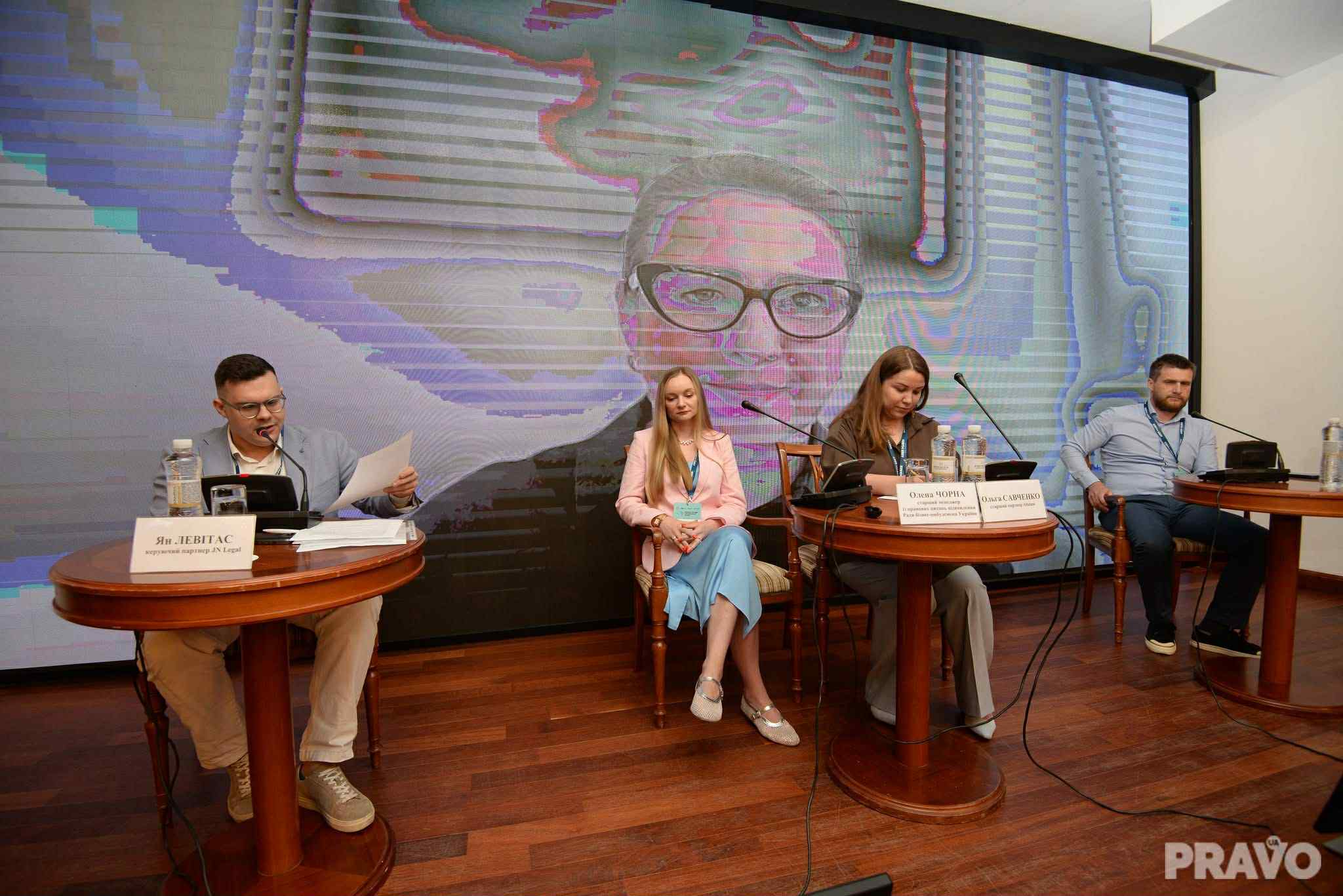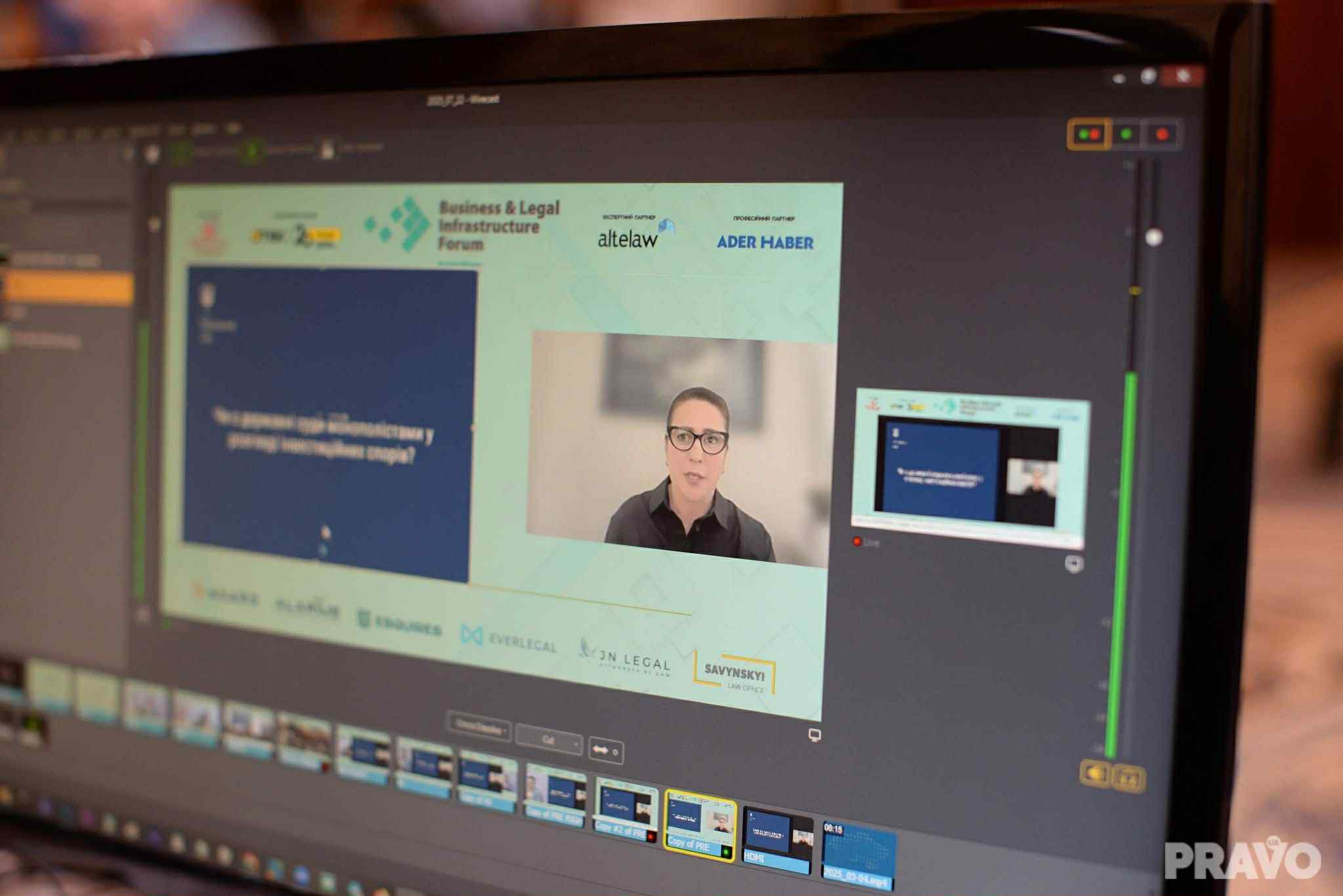Contact center of the Ukrainian Judiciary 044 207-35-46

The duration of proceedings, the percentage of overturned decisions, alternative dispute resolution methods, and the Supreme Court’s new approaches to case review – these and other issues were addressed by Olena Kibenko, Supreme Court judge in the Commercial Cassation Court, at the IV Business & Legal Infrastructure Forum.
The judge began her speech with a provocative question whether state courts, including commercial courts, are monopolists in investment disputes. The speaker noted that, in fact, commercial courts have many competitors in investment disputes. Among them are arbitral tribunals, international commercial arbitration, mediators, etc. This motivates courts to constantly develop in order not to lose in such competition.
At the same time, the speaker pointed out that alternative dispute resolution (ADR) methods are still not widely used in Ukraine. This contributes to excessive caseloads in the judiciary, whereas it would be more appropriate for a greater number of disputes to be handled by arbitral tribunals and arbitration institutions. In countries with well-functioning legal systems, very few disputes are resolved in courts, as litigation tends to be time-consuming and costly.
Olena Kibenko pointed out that both the business and legal communities have many myths about the work of commercial courts. For example, that almost 80% of the decisions of commercial courts of first instance are reviewed in cassation, and that all cases take years to be considered. Instead, statistics for 2022-2024 show that the time it takes to consider a case from the first instance to the cassation instance is less than a year - 235 days. Prior to the full-scale war, this figure was 160-180 days, or six months. At the same time, it should be borne in mind that its increase after 2022 is obviously due to the outbreak of war. Such timeframes are quite acceptable in view of the timeframes for consideration of cases by commercial courts in other countries. In particular, the relevant cases in the UK are considered within 1-3 years.

As for the CommCC within the Supreme Court, the average time for consideration of cases in the court for the specified period is 69 days. According to the Commercial Procedure Code of Ukraine, the first hearing is held within a month after the commencement of proceedings, and in most cases, a final decision is made at this hearing. This means that cases are considered within 30 days. However, there are also complex cases, in particular those that are referred to the Joint Chamber of the CommCC of the Supreme Court or the Grand Chamber of the Supreme Court. Accordingly, this affects the timeframe for their consideration, as well as the average timeframe for the cassation court to consider cases.
Regarding the number of cases reviewed on appeal and cassation, the speaker noted that appellate courts review about 20% of first instance court decisions, and the cassation court reviews about 30% of appeal decisions. Thus, only 7.7% of first instance decisions are reviewed at the level of the Supreme Court. An even more telling indicator is that only 1.3% of first instance court decisions reviewed by the SC are changed at the cassation level. This is evidence of the quality of the work of the courts of first instance and appeal.
Olena Kibenko also noted that the Supreme Court is working to improve the structure of court decisions. The results of the work of the relevant task forces are used by both judges of the Supreme Court and judges of the courts of previous instances. The developed structure of the court decision helps to present it more clearly and better justify it.
The judge pointed out that in countries with commercial courts (the UK, Japan, etc.), it is important for judges to have some business experience. It helps the judge understand the nature of commercial disputes and resolve them without excessive formalism.

As an example, Olena Kibenko cited the resolutions of the Supreme Court of 10 January 2024 and 24 February 2025 in case No. 911/266/22. The court concluded that it is impossible to acquire a share in a company with a market value of UAH 1.4 billion for UAH 2 thousand. In this case, the company's charter capital was increased, and everything seemed legal (there were no violations regarding the convening, holding of meetings, decision-making, etc.). However, the Supreme Court concluded that in fact, the foreign shareholder's share in the company's charter capital was unlawfully diluted (reduced from 100% to 20%).
In its resolution dated 15 July 2025 in case No. 914/653/24, the Supreme Court, as well as in a number of other resolutions (dated 31 March 2021 in case No. 923/875/19, dated 1 December 2021 in case No. 908/3467/19), considered the application of the principle of prohibition of contradictory behaviour, namely whether it is possible to vote at a meeting and sign the charter, and then change one's mind and appeal the relevant decisions to the court, citing certain violations in convening the general meeting.
In case No. 914/653/24, the Supreme Court also held that a structure of a limited liability company’s collective executive body, in which all directors are vested with managerial powers and there is no sole executive officer, is lawful. Olena Kibenko noted that such a structure enables shareholders to avoid the well-known situation where, in the event of an equal distribution of votes, one of them gains an unjustified advantage in corporate governance by appointing “their own director”.
To protect investors from bad-faith actions by management or a majority shareholder, the Court relies on the doctrine of “piercing the corporate veil,” the business judgment rule (as applied, in particular, in the resolutions of the Commercial Cassation Court within the Supreme Court of 10 January 2024 in case No. 911/266/22 and of 29 May 2024 in case No. 910/15260/18), and the concept of a fraudulent transaction by a company (Grand Chamber resolution of 18 December 2024 in case No. 916/379/23).
Returning to the topic of competitors of commercial courts, Olena Kibenko reminded that for a long time it was proposed to create an investment court in Ukraine to consider investment disputes. However, today this idea is no longer popular for various reasons: the long time it takes to set up such a court; the fact that it will probably be staffed by the same judges who consider the relevant disputes in commercial courts; the question of the court's jurisdiction (as disputed issues may relate to civil, commercial, administrative and criminal cases).
The speaker also drew attention to Draft Law of Ukraine No. 12141 dated 21 October 2024, “On Amendments to the Law of Ukraine 'On International Commercial Arbitration' Regarding the Expansion of the Jurisdiction of International Arbitration”. She noted that while she generally supports the idea of expanding arbitration jurisdiction, the wording of the relevant provisions requires clarification. The Supreme Court, which provided an expert opinion on the draft law, is currently working on this.
The IV Business & Legal Infrastructure Forum was organized by Yurydychna Praktyka (Legal Practice) newspaper.